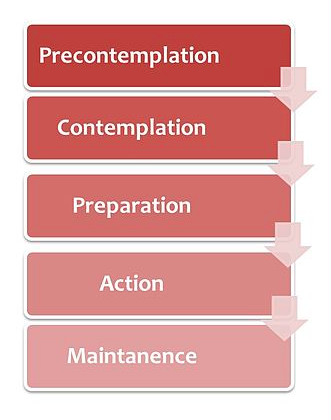
Ever been to a hot power yoga class, and you see a participant executing a handstand and wonder if maybe that could be you one day?
I have—I experienced this about 3 years ago, and I still don’t have my handstand down! It’s not that I don’t have the strength for it; I do. It’s the fear of falling and getting really hurt which is holding me back.
So what is it about the handstand that is so difficult?
Handstands are all about creating a solid foundation. Your hands are on the ground, and they are responsible for holding you up and making sure you don’t fall. So if your foundation is weak or shaky (or nonexistent), you will not be able to accomplish your handstand goals.
Foundations aren’t just for handstands. Foundations are the key to finding balance within yourself. They are the fundamentals for any relationship you have—with other people, with yourself…and with your goals.
We all know changes don’t happen overnight. There is a process—and it usually requires the support of people who believe in us and want to help us grow.
Picture a relationship you have. Is it strong? Are you able to be open and honest with this person? Are you getting what you need out of the relationship? If not, go back to the basics. Revisit the foundation—what has held the relationship together through life’s ups and downs? Start working on fixing or maintaining these foundational values, and the relationship will get stronger.
The same goes for achieving any goal in life. And the more ambitious your goal, the stronger a foundation you need to build.
So how do we build new, stronger foundations? And how do we know when it is time to make these changes in our lives?
Have you ever seen a person suddenly make a drastic life change and wonder where it came from? What happens to cause people to wake up one morning and say, “I’m not okay. What I’m doing right now isn’t working. Is this the kind of life I want to be living?”
We all know changes don’t happen overnight. There is a process—and it usually requires the support of people who believe in us and want to help us grow.
Two psychologists named Prochaska and D’Clemente created the 5 Stages of Change Model, or the Transtheoretical Model. The 5 stages of this model are Precontemplation, Contemplation, Preparation, Action, and Maintenance.

In the first stage, precontemplation, one is not thinking seriously about change and is not interested in any kind of help. Someone in this stage tends to defend her current bad habit(s) and does not feel she has a problem. She is perfectly comfortable with how she is…or she is in denial.
The next stage is called contemplation, and it occurs when one starts having levels of anxiety or discomfort, or even experiences some sort of depression. She knows something is wrong; she wants to get better, but is afraid and anxious to take that first step.
In order to get to the third stage, which is called planning, a coach, family member, or good friend may be needed to help someone take the first step toward change. Reading articles about what one is experiencing and talking about it with others can also be very beneficial in trying to understand the negativity one is feeling. Having a support system in place can be the push someone needs to get help, whether that means signing up for a class, making an appointment with a medical professional, or going to therapy.
The fourth stage is action. This is the stage when someone actively works on her goals. Keep in mind that there may be new anxieties which arise getting to this phase, and one will need anchors to overcome them. Again, having a support system in place will really help one accomplish her goals.
when you are used to doing things a certain way, it can be very difficult to maintain a new long-term change. Having someone to hold you accountable is one of the best ways to maintain positive changes in your life.
The hardest part is the last stage; the highest level of change. Being able to stay in maintenance mode definitely requires that support which has helped one along the way. Most people don’t last in this stage for long. Before they know it, they are back to their old habits.
Why does this happen? Because change is hard, and when you are used to doing things a certain way, it can be very difficult to maintain a new long-term change. Having someone to hold you accountable is one of the best ways to maintain positive changes in your life. Also, really digging deep within yourself and reminding yourself why you started down this path can help as well.
As we build new and solid foundations for lasting positive life changes, it is important to keep our goals in mind and ask our loved ones for help when we need it.
There is a quote I saw online that says: “The most important spiritual growth doesn’t happen when you’re mediating or on a yoga mat. It happens in the midst of conflict—when you’re frustrated, angry, or scared, and you’re doing the same old thing, and you suddenly realize you have a choice to do it differently.”
What most people forget is that change doesn’t occur when life is wonderful and everything is going their way. Often, it’s a rude awakening, maybe a post one sees on Instagram or a comment someone makes, which suddenly causes one to realize: Oh! There is another way, and I have the power to choose differently.
Don’t be afraid to get uncomfortable—that’s where beautiful growth happens!